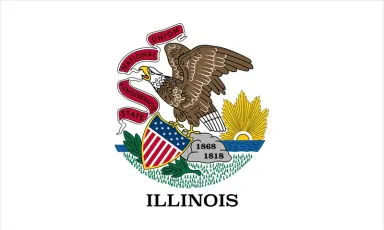Oklahoma Trucking Laws

The most recent available data from the Oklahoma Highway Safety Office reveals that there were 5,575 crashes that involved large trucks throughout the state in 2021. Of these, 1,816 occurred on interstate highways, while 1,109 occurred on streets in various Oklahoma cities. Ninety-nine of the crashes resulted in fatalities, and 130 involved serious injuries.
The chief contributing factors to these recorded accidents include improper vehicle movements, unsafe lane changes, and excessive speeding by commercial truck drivers. Similar factors also contributed to accidents where drivers of other vehicles were the ones who caused a collision with a large truck.
Given the prevalence of truck accidents in Oklahoma, the state government continues to strictly impose traffic regulations to monitor vehicle movement, ensure drivers' well-being, and prevent crashes and collisions. It has also set guidelines that regulate the weight and condition of trucks and laws that support motorists seeking compensation for their injuries and damaged property in the wake of an accident.
Weight Limits for Oklahoma’s Commercial Trucks
Oklahoma imposes varying weight limits for commercial trucks based on the number of axles a specific truck has. This is part of the state’s efforts to prevent any possible accidents that can occur due to an overloaded or overweight truck, which can lead to incidents involving rollovers and jackknifing. All trucks with designated limits should not exceed 80,000 lbs., unless they are traveling on special routes and possess the appropriate permits.
The specific weight limits set by the state are as follows:
20,000 lbs for single-axle trucks
40,000 lbs for tandem-axle trucks, with a minimum of 20,000 lbs per axle
60,000 lbs for tridem-axle trucks, with a minimum of 20,000 lbs per axle
The weight limit for steer-axle trucks is calculated by multiplying the tire size by 600 and the total number of tires. The resulting weight must be at most 15,000 lbs. Trucks in the state also cannot pass through load-restricted bridges if their weight exceeds the bridge’s posted limits.
Exceptions to the state’s specified weight limits apply to trucks that transport oil field equipment and raw agricultural products, as well as those that haul sand, gravel, rocks, or timber. Such vehicles can obtain annual special overload permits if they meet the requirements of the state’s government agencies, including the Department of Public Safety.
Additionally, vehicles that are used in emergencies to transport personnel and equipment can travel on interstate highway systems. The maximum gross weight allowed for these vehicles is 86,000 lbs, with less than:
24,000 lbs (for those with a single steering axle)
33,500 lbs (for those with a single drive axle)
52,000 lbs (for those with a tandem rear drive steer axle)
62,000 lbs (for those with a tandem axle)
Oklahoma Truck Maintenance Regulations
Under the guidelines of the Federal Motor Carrier Safety Administration (FMCSA), trucking companies in Oklahoma that operate on an interstate basis must monitor the working condition of their vehicles by conducting routine inspections, repairs, and maintenance work.
Oklahoma law also requires all registered vehicles within the state to undergo annual inspections at designated stations as part of the Motor Vehicle Inspection Act. Trucking companies may carry out their own inspections and maintenance work if their facilities meet the standards set by the Commissioner of Public Safety.
Any company that fails to inspect, repair, or maintain its vehicles can be held accountable if one of its trucks causes an accident and the crash is attributed to a malfunction in the vehicle’s system. As such, a company must monitor the following parts in a truck for any possible defects:
Brakes (including those for trailers)
Coupling devices
Steering mechanisms
Lighting, reflectors, and mirrors
Tires and horn
Any emergency equipment within the truck (like fire extinguishers and early warning devices)
Once a truck has been inspected and evaluated, the company must keep the certification of inspection within the vehicle, which must be shown to law enforcement officers if requested.
In addition to inspections within designated facilities, trucks may also undergo roadside inspections conducted by state troopers who enforce the safety regulations of the FMCSA. Each inspection can involve:
A standard assessment of a truck driver’s license, record of duty, and credentials
An evaluation of vehicle inspection reports
Walk-around and vehicle-only inspections
Special inspections of specific items
Oklahoma Speed Limits
Oklahoma has speed limits in place that are stringently imposed on all motorists, including truck drivers, to regulate traffic flow and prevent accidents. Different locations have varying limits based on the establishments, roadways, and districts present.
25 mph within residential districts and school zones
35 mph within state parks and wildlife refuges
55 mph on country roads
65 mph on urban freeways and interstates, as well as rural undivided roads
75 mph on rural freeways and interstates
Additionally, the speed limit for vehicles or a combination of vehicles that have solid rubber or metal tires is 10 mph.
Vehicles are also expected to run at a reasonably reduced speed to avoid causing crashes or collisions when:
Crossing or approaching an intersection or railway-grade crossing
Approaching a hillcrest
Navigating a curve
Navigating a winding and/or narrow roadway
Navigating roadways with special hazards caused by road conditions or inclement weather
Any driver who fails to obey speed limits in the state will be fined between $10 and $205 based on how far they exceed any posted limit. They may also be imprisoned for a minimum of 10 days to a maximum of six months based on how many offenses they have committed.
DUI and DWI Laws in Oklahoma
To curb the likelihood of accidents caused by drunk and impaired driving, Oklahoma laws prohibit any motorist from operating a vehicle while under the influence of alcohol, drugs, or other intoxicating substances. An individual will be charged with a DUI offense if their blood alcohol content (BAC) level exceeds .08 percent. Drivers under 21 will be charged if they have alcohol in their system, regardless of their BAC level.
If a motorist’s BAC level is less than .08 percent but greater than.05 percent, they may be penalized for driving while impaired. However, a DWI charge is only given if there is additional evidence to prove that the person’s ability to operate a vehicle has been affected by alcohol intake to the point where other people are endangered or a moving violation was committed.
Commercial vehicle drivers will receive a DUI charge if their BAC level reaches or exceeds .04 percent. Potential penalties include a fine of $1,000 to $5,000 and a sentence of 10 days to seven years in jail. An offender’s commercial driving license will also be suspended for at least one year for a DUI charge or if they refuse to take a blood or breath test. A second violation can result in the permanent disqualification of their license.
Oklahoma Commercial Trucking Insurance Requirements
As mandated by the FMCSA, all commercial trucks throughout the country must have primary liability insurance coverage worth between $750,000 to $1,000,000. Trucking companies in Oklahoma will use this coverage to address victims' losses in terms of medical treatment and repair costs in case one of their drivers causes an accident. Any company that fails to obtain the minimum amount of liability coverage will be prohibited from operating.
In addition, all motor carriers and freight forwarders that transport household goods must get cargo insurance worth $5,000 per vehicle and $10,000 per catastrophe, as per the FMCSA’s regulations. Freight forwarders and brokers must also follow federal requirements by obtaining surety bonds and trust fund agreements worth at least $75,000.
Trucks within Oklahoma with a gross vehicle weight of more than 26,000 lbs and never operate outside the state must have an intrastate-only USDOT number. They must also have the following liability coverage based on the type of freight they haul:
$300,000 for household goods
$750,000 for general cargo
$1,000,000 for oil transport
$5,000,000 for hazardous materials
On top of these requirements, Oklahoma trucking companies must also obtain the minimum “split” liability coverage required by state law. The minimum amounts follow the 25/50/25 format or:
$25,000 for the injuries of one person
$50,000 for the injuries of multiple people
$25,000 for any damaged property
A trucking company’s insurance options are dictated by the types of trucks it has and their sizes. As such, companies with large trucks must have higher insurance limits.
How Much Can Someone Sue for a Truck Accident in Oklahoma?
The Oklahoma Constitution does not impose any limits on the compensatory damages that a truck accident victim can recover. These damages include payments for past and future medical treatments, subsequent rehabilitative care, and lost wages, along with repair costs for damaged property. Additionally, the state abolished its cap on damages involving pain and suffering following the decision of the Oklahoma Supreme Court in 2019.
Victims can also recover punitive damages if a judge determines that an offending driver acted with malice or willfully disregarded the safety and well-being of other motorists based on “clear and convincing evidence.” In these cases, punitive damages awards are limited to $500,000 or twice the amount of actual damage awards.
Oklahoma Statute of Limitations for Truck Accidents
The statute of limitations for claims and lawsuits in truck accident cases in Oklahoma is two years, starting from the date of the accident. This applies to claims involving injuries and damaged property alike. For wrongful death cases, the statute begins at the date of the victim’s death instead of when the accident took place.
There are cases wherein the state’s statute of limitations is extended, particularly if it involves minors or victims deemed legally disabled or mentally incompetent. As such, the statute will only begin to apply once a minor turns 18 or when a disabled or mentally incompetent person recovers. However, the statute then lasts only for one year in such cases.
Similarly, if a defendant or a person believed to be responsible for an accident flees the state or conceals their identity before a plaintiff can file a lawsuit, the statute of limitations will not count the period of absence or concealment against the plaintiff’s time frame in the filing.
Lastly, Oklahoma follows the discovery rule in injury-related cases, where the statute of limitations only begins when a victim reasonably discovers an injury or complication from an accident at a later time.
Oklahoma is an At-Fault State for Insurance Claims
Oklahoma follows at-fault guidelines for insurance claims concerning motor vehicle accidents, meaning that any driver proven to be responsible for a crash or collision will use their liability coverage to pay for the losses of injured parties. A victim can recover losses by filing a claim against the offending driver’s insurer.
Under at-fault scenarios, plaintiffs can also file a claim against their own insurance company to cover damages using comprehensive and collision insurance. The former pays for losses caused by non-accident factors such as hazards and vandalism, while the latter addresses vehicle damage caused by collisions with other vehicles, obstacles, or objects.
A plaintiff can work with an attorney to prove another driver’s fault using eyewitness statements, police reports, traffic camera footage, and/or video recordings, including those from nearby establishments.
Oklahoma is a Modified Comparative Negligence State for Commercial Trucking Accident Lawsuits
In line with Oklahoma’s laws on modified comparative negligence, truck accident victims in the state cannot recover any damages in a claim or lawsuit if the court finds that they are 50% liable for the crash or collision. If their fault is less than 50%, any damages awarded will be reduced based on that percentage. This means that if a victim is awarded $100,000 in damages but is also 25% liable for the accident, they will only get $75,000.
A driver’s negligence in an accident case is determined based on the following factors:
The driver’s duty of reasonable care (preserving the safety of other motorists)
The driver’s breach of such a duty (committing a moving violation)
The driver’s breach of duty caused a plaintiff’s injury
The driver’s actions being reasonably related to the plaintiff’s injury
The plaintiff suffering losses as a result of his or her injury
If multiple parties are involved in an accident, each party will be compensated for their losses based on their apportioned fault. The party that is less than 50% liable for the accident in question may obtain compensation from the insurers of the other parties.
Average Settlement for Oklahoma Trucking Accident Lawsuits
The settlement that a truck accident victim in Oklahoma can get depends on the factors and circumstances involved in each specific case. Because of this, it is difficult to determine the average settlement for truck accident claims and lawsuits.
In most cases, truck accident settlements are determined based on the following:
The extent of a victim’s injuries
The economic impact of these injuries on the victim’s daily life (in terms of lost income, missed livelihood opportunities, repair costs, etc.)
The long-term effects of the injuries (in terms of pain and suffering, trauma, loss of enjoyment of life, etc.)
Taking the size and weight of trucks into account, truck accident settlements are often higher than those in car accident cases due to the severe nature of the injuries involved. A truck crash or collision also often involves greater liability on the part of the defendant because of the stricter federal and state regulations that truck drivers and their companies must follow. In certain cases, both the driver and the company can be held accountable for an accident.
Legal Resources for Oklahoma Trucking Accident Victims
Oklahoma Bar Association
The Oklahoma Bar Association’s website offers access to a directory containing the contact information of various legal firms and establishments throughout the state, including pro bono organizations, legal clinics, and the Oklahoma County Law Library. The website also has a Find a Lawyer section for truck accident victims who seek legal counsel and a Law for People section that provides free legal information for citizens who wish to learn about laws and regulations within the state.
Oklahoma Insurance Department - Consumer Assistance
The Consumer Assistance Section of the Oklahoma Insurance Department’s website informs people about the basic steps and processes involved in filing an insurance claim after an accident. It also has a section for those who wish to file a complaint online for claims that have not been handled properly, along with an external link to the National Association of Insurance Commissioners website for people who seek additional information about various insurance types.
Oklahoma State Courts Network - Docket Search
The Oklahoma State Courts Network has a Docket Search section that allows people to look for court records in counties and cities across the state. In addition, the section lets Oklahoma residents search for specific records in district courts based on traffic citations and within appellate courts using lower court case numbers.
InjuryLawRights - Oklahoma
InjuryLawRights is a national legal organization whose aim is to provide legal aid to personal injury clients throughout the country. Its staff is available for free case evaluations and connects Oklahoma residents to any pro bono attorneys within their respective cities and counties. Additionally, it provides comprehensive information concerning the laws and guidelines involved in truck accident cases. For any additional inquiries, the organization can be contacted at (855) 633-0888.
Expertise.com StaffAuthor
Step into the world of Expertise.com, your go-to hub for credible insights. We don't take accuracy lightly around here. Our squad of expert reviewers, each a maestro in their field, has given the green light to every single article you'll find. From rigorous fact-checking to meticulous evaluations of service providers, we've got it all covered. So feel free to dive in and explore. The information you'll uncover has been stamped with the seal of approval by our top-notch experts.




